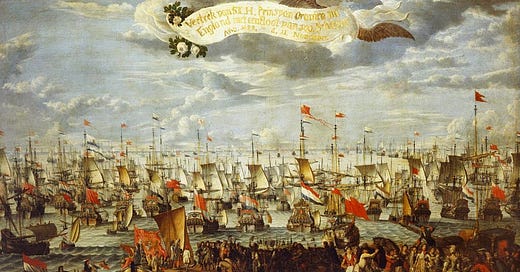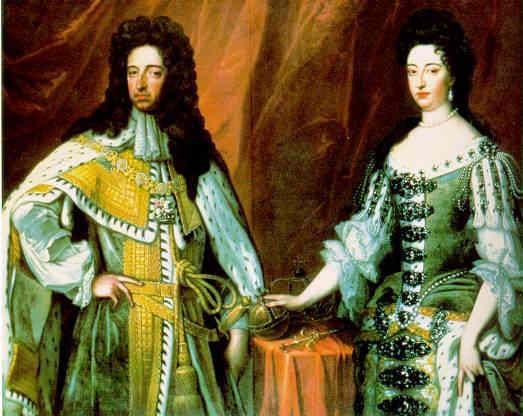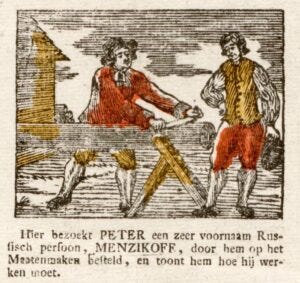Almost no one knows the Dutch once conquered England.
William III was Prince of Orange and Stadtholder of the Netherlands (and one of the forebears of the current Dutch king William Alexander). In 1688, he sailed with an armada of around 450 ships from Hellevoetsluis in Holland, to Torbay in the south of England. An onlooker described it as "The most magnificent and affecting spectacle...ever seen by human eyes”. 20.000 soldiers set foot on England’s soil on 18 November 1688. After six weeks, William entered London, cheered by large crowds. James II, king of England, Scotland and Ireland fled to France, and William was proclaimed king and his wife Mary, queen. This event is called the Glorious Revolution.
William’s spin doctor, Willem Bentinck, had devised an elaborate PR campaign to convince the English that William would be a better choice for king than James. The invading army even brought along a printing press to print leaflets in support of William’s cause. He could make a credible claim to the throne, his wife Mary being the eldest daughter of James II, and he the king’s nephew. Many English nobles were easy to convince. They disliked James II because he was a Catholic, and rallied to the side of the protestant William. Thus, there was little fighting involved, and little blood was shed.
For the Dutch, it turned out to be a Pyrrhic victory.
Before the Glorious Revolution, Holland was one of Europe’s leading naval and commercial powers and had significant economic and political influence. However, the ascension of William III led to the replacement of Holland by England as the main commercial and naval power in Europe.
One of the reasons for this was the transfer of financial techniques and expertise from Holland to England.
The Dutch had developed a sophisticated banking system, which included techniques such as deposit banking, check writing, and bills of exchange. The English adopted many of these techniques, and the Bank of England, founded in 1694, was modeled on the Dutch banking system.
The Dutch were also pioneers in the development of global trade networks. The English learned from them how to create and manage large-scale trading companies, such as the East India Company and the Hudson Bay Company.
They were skilled shipbuilders and sailors, too. After all, in 1697 the Russian Czar Peter the Great came to Holland to work in a shipyard and learn about Dutch shipbuilding techniques. The English adopted these techniques and expanded their naval power, and developed a significant maritime trade. Even today, many terms in sailing are derived from Dutch, for instance: skipper, brandy, deck, Iceberg, and kink.
In the Netherlands, the 17th century is called the Golden Age. Holland was Europe's biggest commercial and naval power. On top of that, all the famous Dutch painters (e.g., Rembrandt, Vermeer, and Frans Hals) lived and worked in this period.
Thus, the Dutch Golden Age ended with a victory that caused Holland’s downfall and descent into mediocrity.







eg 1672 het rampjaar?
bizarre gebeurtenis.
of je de neergang van NL en de opkomst van UK hieraan kunt koppelen ?
dat lijken mij grotere bewegingen?